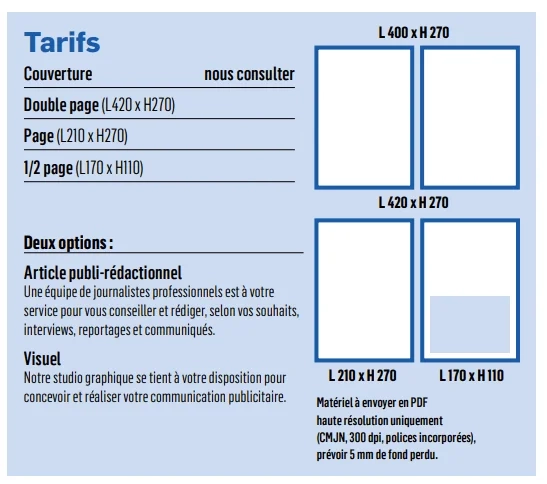Space not available
Reserve this advertising space
Selected ad format
The file format is not recognized
Click here for
send an announcement
Click here to transmit
an announcement
Ici glisser – déposer ou
send an announcement
Send the ad up to 8 days after payment
Un lien vous sera adressé par contact@via-agency.media
Reserved space
Announcement transmitted
Reference

In Togo, the fishing sector employs more than 22,000 people and provides a livelihood for at least 150,000 people. It contributes nearly 4.51 billion pounds to the primary sector's GDP.
Space not available
Reserve this advertising space
Selected ad format
The file format is not recognized
Click here for
send an announcement
Click here to transmit
an announcement
Ici glisser – déposer ou
send an announcement
Send the ad up to 8 days after payment
Un lien vous sera adressé par contact@via-agency.media
Reserved space
Announcement transmitted
Reference
National fish production reached 27,000 tonnes in 2017. This production is mainly driven by artisanal maritime fishing, led by the Lomé Fishing Port. Artisanal maritime fishing production represents more than 80,000 tonnes of national production. Artisanal deep-sea fishing is experiencing strong growth, driven by the government's efforts in recent years to develop the maritime and fisheries sectors.
However, Togolese fishing is subject to challenges:
– Overfishing and illegal and destructive fishing practices;
– Changes in seasonal patterns of fish availability and fishing activities due to climate change;
– Pollution, mainly from plastic waste
To address this, Law No. 2016-026 of October 11, 2016, regulating fisheries and aquaculture, guarantees regulated and environmentally friendly fishing. This law formalizes Togo's position regarding IUU fishing (illegal, unreported, and unregulated fishing): the country ensures that its vessels and nationals do not engage in it, by implementing the necessary measures to combat it, and cooperates with third countries to identify, prosecute, and sanction stakeholders. In this regard, this law provides for the establishment of a national register under the aegis of the Ministry of Fisheries and Aquaculture, listing all fishing vessels and boats. Registration on this register is a prerequisite for obtaining a fishing license, authorization, or permit.
Space not available
Reserve this advertising space
Selected ad format
The file format is not recognized
Click here for
send an announcement
Click here to transmit
an announcement
Ici glisser – déposer ou
send an announcement
Send the ad up to 8 days after payment
Un lien vous sera adressé par contact@via-agency.media
Reserved space
Announcement transmitted
Reference
This law created an interministerial and interprofessional fisheries advisory committee, responsible for coordinating activities and monitoring national policy. Measures for the conservation and management of fisheries resources are put in place: various regulations concerning the minimum sizes and weights of species, periods of closure of fishing zones to allow the reproduction of marine species, prohibition of certain types of vessels, gear or fishing methods depending on the zones, minimum opening of net meshes, etc. Togo makes it a point of honor to ensure effective surveillance of its territorial waters. To this end, it has set up a satellite monitoring system for fishing vessels (VMS). The maritime prefecture organizes numerous simulation exercises at sea to continually strengthen the already high expertise of its various administrations involved in the fight against maritime piracy.
Fish production increased from 20 tons in 2012 to 1,000 tons in 2019. This production is driven by the private company Lofty Farm, which specializes in producing tilapia in large floating cages of 2,200 cubic meters each and medium cages of 400 cubic meters each, installed on Lake Nangbéto. A dozen other developers have just started fish farming in floating cages of 400 cubic meters each on this lake with state support. Lofty Farm's production represents approximately 70% of the national fish production.
Fish production on Lake Nangbéto
Fisheries production on Lake Nangbéto has increased by 5% in 7 years, from 600 tonnes in 2012 to 3,200 tonnes in 2019. This significant performance is driven by the implementation of the Lake Nangbéto Fisheries Management Plan, part of the PASA (Agricultural Sector Support Project).
This plan, adopted in 2013, was based on the model of inland fisheries management plans, with the aim of compensating for the depletion of fish stocks due to uncontrolled exploitation.
OPPORTUNITIES
The creation of a single window for non-tax revenues from the maritime sector is envisaged to facilitate formalities and centralize payments for stakeholders using Togolese territorial waters for transhipment operations at sea and industrial fishing.
Opportunities exist in many sectors, such as ship repair through the creation of shipyards, warehousing, and multimodal transport infrastructure, enabling the transition from maritime to other modes of transport, such as air or road. Togo has also embarked on a vast project to develop its coastline, which will ultimately offer investment opportunities in seaside tourism, the construction of marinas, and seaside real estate development.
The development of aquaculture is an opportunity for job creation.
Space not available
Reserve this advertising space
Selected ad format
The file format is not recognized
Click here for
send an announcement
Click here to transmit
an announcement
Ici glisser – déposer ou
send an announcement
Send the ad up to 8 days after payment
Un lien vous sera adressé par contact@via-agency.media
Reserved space
Announcement transmitted
Reference



















 A Seat That Transforms into a Bed
A Seat That Transforms into a Bed  In the world of air travel, economy class is often considered the most affordable option. However, at Air Afrika, we believe that affordability shouldn't mean compromising on quality of service. Our class
In the world of air travel, economy class is often considered the most affordable option. However, at Air Afrika, we believe that affordability shouldn't mean compromising on quality of service. Our class









